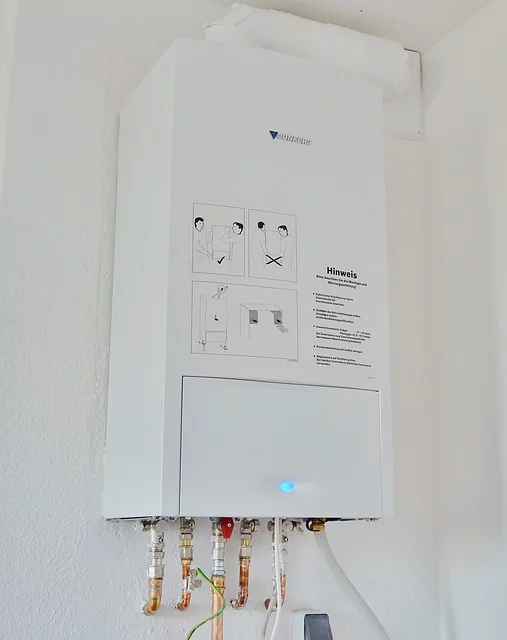Boilers are an essential part of many homes and businesses, providing heat and hot water for daily use. However, like any appliance, boilers have a limited lifespan, and it is essential to understand how long they are expected to last. Knowing the average lifespan of a boiler can help you plan for maintenance and replacement, ensuring that your home or business stays comfortable and safe.
Understanding the lifespan of a boiler is not always straightforward, as many factors can affect how long it lasts. Proper maintenance, usage patterns, and environmental factors can all play a role in determining a boiler’s lifespan. In this article, we will explore the various factors that can impact a boiler’s lifespan and provide guidance on how to maintain and the need to replace your boiler when the time comes. By the end of this article, you will have a better understanding of how long your boiler is likely to last and how to plan for its replacement.
Key Takeaways
Boilers have a limited lifespan that can be impacted by various factors, including maintenance, usage patterns, and environmental factors.
Regular maintenance can help prolong your boiler’s lifespan and prevent costly breakdowns.
When it comes time to replace your boiler, it is essential to consider environmental and safety considerations, financial and legal aspects, and your specific needs and budget.
Understanding Boiler Lifespan
Boilers are essential for keeping your home warm and providing hot water, but they do not last forever. Understanding the lifespan of your boiler can help you plan for its replacement and avoid unexpected breakdowns.
Factors Affecting Boiler Durability
Several factors can affect the durability and life of your boiler itself. One of the most significant factors is the type of fuel it uses. Gas boilers tend to last longer than oil boilers due to the cleaner burning of gas. Additionally, the type of boiler you have can impact its lifespan. System boilers and combi boilers tend to last longer than conventional boilers due to their simpler design.
Another factor that affects the lifespan of your boiler is the quality of its installation. Poor installation can lead to premature wear and tear, reducing the lifespan of your boiler. Regular maintenance and servicing can also help to extend the lifespan of your boiler by identifying and fixing small issues before they become major problems.
Average Lifespan of Different Boiler Types
The average lifespan of a boiler can vary depending on the type of boiler you have. Here is a breakdown of the average lifespan of different types of boilers:
Gas boilers: 10-15 years
System boilers: 15-20 years
Combi boilers: 10-15 years
Condensing boilers: 10-15 years
Oil boilers: 10-15 years
It is important to note that these are just averages, and the lifespan of your boiler can be affected by various factors. Regular maintenance and servicing can help to extend the lifespan of your boiler, while neglecting it can lead to premature breakdowns and replacement.
In conclusion, understanding the lifespan of your boiler is essential for planning and budgeting for its replacement. Factors such as the type of fuel it uses, the type of boiler you have, and the quality of its installation can all affect its durability. Regular maintenance and servicing can help to extend the lifespan of your boiler, but eventually, all boilers will need to be replaced.
Maintaining Your Boiler
As with any other appliance, regular maintenance and annual boiler service is essential to keep your boiler running efficiently and prolong its lifespan. In this section, we will discuss the importance of annual service and common maintenance procedures.
Importance of Annual Service
To ensure that your boiler is in good working condition, it is recommended that you have it serviced annually by a Gas Safe registered engineer. During the service, the gas safe engineer will inspect the boiler, clean its components, and check for any faults or potential issues.
Regular servicing can help identify any problems early, preventing them from escalating into more significant and costly repairs. It can also help improve the efficiency of your own boiler and heating system, reducing your energy bills and carbon footprint.
Common Maintenance Procedures
In addition to annual servicing, there are some common maintenance procedures that you can carry out to keep your boiler running smoothly. These include:
Cleaning the boiler: Regularly cleaning the exterior of your boiler can help prevent the build-up of dust and debris, which can affect its efficiency.
Installing a magnetic filter: A magnetic filter can help trap any debris in the system, preventing it from clogging up the boiler and reducing its efficiency.
Power flushing: Power flushing involves flushing out the entire heating system with water and chemicals to remove any sludge or debris that may have accumulated over time. This can help improve the efficiency of your boiler and prolong its lifespan.
Service plan: Many boiler manufacturers offer service plans that include annual servicing and cover the cost of any repairs or replacements. Investing in a service plan can provide peace of mind and help you avoid unexpected expenses.
By following these maintenance procedures, you can help ensure that your boiler runs efficiently and lasts for as long as possible. If you are unsure about any of the maintenance procedures, it is always best to consult a Gas Safe registered engineer.
Signs of a Failing Boiler
If you have had your boiler for a while, you may start to notice signs of wear and tear. Here are some common signs that your boiler may be failing:
Frequent Breakdowns and Repairs
If your boiler is breaking down frequently, it may be a sign that it is coming to the end of its life. While some breakdowns are to be expected, if you are having to call out a repair engineer more than once a year, it may be time to consider a replacement. Additionally, if the cost of repairs is becoming increasingly expensive, it may be more cost-effective to invest in a new boiler.
Inefficiency and High Energy Bills
As boilers age, they become less efficient, which can result in higher energy bills. If you have noticed that your energy bills are increasing, it may be a sign that your boiler is no longer operating as efficiently as it should be. A new boiler can help to reduce your energy bills and save you money in the long run.
Noisy Operation and Leaks
If your boiler is making strange noises or leaking water, it may be a sign of a more serious problem. Noisy operation can be caused by limescale build-up or a faulty pump, while leaks can be caused by a damaged seal or pressure valve. If you notice any of these issues, it is important to call out a qualified engineer to assess the problem.
In conclusion, if you notice any of these signs, it may be time to consider replacing your own boiler with a modern one. Investing in a new boiler can help to reduce your energy bills, improve efficiency, and prevent costly breakdowns and repairs.
Replacing Your Boiler
If your boiler is showing signs of wear and tear, or it’s over 15 years old, it may be time to consider a replacement. A new boiler can offer improved energy efficiency, lower heating bills, and increased reliability. Here are some things to consider when replacing your boiler.
When to Consider a New Boiler
There are several signs that your boiler may need to be replaced. If your boiler is frequently breaking down, producing unusual noises, or emitting strange smells, it may be time to consider a replacement. Additionally, if your boiler is not heating your home as well as it used to, or you’re noticing an increase in your heating bills, it may be time to invest in a new boiler.
Choosing a Replacement Boiler
When choosing a replacement boiler, there are several factors to consider. Firstly, you’ll need to decide whether you want a like-for-like replacement or if you want to upgrade to a more modern, energy-efficient model. Modern boilers are typically more efficient than older models, meaning they can help you save money on your heating bills in the long run.
You’ll also need to consider the cost of the replacement boiler and any installation fees. It’s important to shop around and get quotes from several different providers to ensure you’re getting the best deal. Additionally, you’ll want to check the manufacturer’s warranty on the replacement boiler to ensure you’re covered in case of any faults or defects.
Overall, replacing your boiler can be a worthwhile investment that can save you money on your heating bills and improve the overall efficiency of your home. By considering the factors outlined above, you can make an informed decision when choosing a replacement boiler that meets your needs and budget.
Environmental and Safety Considerations
When considering how long boilers last, it’s essential to take into account environmental and safety considerations. You want to ensure that your boiler is not only efficient but also safe for you and the environment. Here are some of the factors to consider:
Reducing Carbon Footprint with Efficient Heating
Boilers are responsible for a significant portion of your energy bills, and inefficient boilers can result in high energy consumption and carbon emissions. Upgrading to an energy-efficient boiler can help reduce your carbon footprint and save you money on your energy bills.
Modern boilers are designed to be more energy-efficient than older models, and they come with features such as intelligent controls and condensing technology that can help reduce your carbon footprint. Additionally, regular maintenance and servicing can help keep your boiler running efficiently.
Gas Safety and Carbon Monoxide Risks
Gas boilers can pose a risk of carbon monoxide poisoning if they are not installed, maintained, and used correctly. Carbon monoxide is a colourless, odourless gas that can be deadly, and it’s essential to take precautions to prevent its risks.
To ensure gas safety, it’s crucial to have your boiler installed and serviced by a Gas Safe registered engineer. They can check your boiler for safety and install carbon monoxide detectors to alert you if there is a risk of carbon monoxide poisoning.
In conclusion, when considering how long boilers last, it’s essential to consider environmental and safety factors such as efficient heating, carbon footprint, gas safety, and carbon monoxide risks. Regular maintenance and servicing can help keep your boiler running efficiently and safely, and upgrading to an energy-efficient boiler can help reduce your carbon footprint and save you money on your energy bills.
Financial and Legal Aspects
When it comes to the lifespan of a boiler, there are financial and legal aspects that homeowners and landlords need to consider. In this section, we’ll discuss the importance of boiler warranties and HomeServe plans, as well as the responsibilities of landlords and homeowners.
Boiler Warranties and HomeServe Plans
Most boiler manufacturers offer warranties that cover the cost of repairs or replacement for a certain period of time. Worcester Bosch, for example, offers up to 10 years of warranty on their boilers. It’s important to read the terms and conditions carefully to understand what is covered and what is not. Some warranties may only cover the cost of parts, while others may cover both parts and labour.
HomeServe plans are another option for homeowners and landlords. These plans cover the cost of repairs and maintenance for boilers and other household appliances. HomeServe plans can provide peace of mind, knowing that you’re covered in case of a breakdown. However, it’s important to read the terms and conditions carefully to understand what is covered and what is not.
Responsibilities for Landlords and Homeowners
Landlords and homeowners have different responsibilities when it comes to boilers. Landlords are required by law to ensure that the boiler is safe and in good working order. This includes having the boiler serviced annually by a Gas Safe registered engineer. Landlords are also responsible for ensuring that any gas appliances in the property are safe.
Homeowners are responsible for maintaining their boiler and ensuring that it is in good working order. This includes having the boiler serviced annually by a Gas Safe registered engineer. Homeowners should also ensure that the boiler is installed in a suitable location and that it is properly ventilated.
In addition to these responsibilities, it’s important to consider the cost of storage and water treatment. Proper storage of fuel can prevent contamination and prolong the life of the boiler. Water treatment can prevent corrosion and scale buildup, which can also prolong the life of the boiler.
Overall, understanding the financial and legal aspects of boiler maintenance and replacement can help homeowners and landlords make informed decisions. By taking care of your boiler and ensuring that it is properly maintained, you can prolong its lifespan and avoid costly repairs or replacement.


